The Ultimate Guide to Sustainable Fashion in India.

Sustainable fashion, India: With upcycled, fair-trade, organic, ethical and eco-friendly alternatives, homegrown brands are making a real fashion statement.
Guest post by Parita Bhansali (with inputs)
“Never buy anything that’s less than fabulous. Then you’ll wear it over and over again!”
I often remember the words of Carrie Bradshaw’s character in Sex and the City before I buy something. She might not have meant it that way, but for me, it represents everything sustainable fashion in India is about.
Sustainable fashion, India: An introduction

What does fashion, the clothes we buy and the brands we support with our money have to do with any of this?
Turns out, the fashion industry is responsible for 10% of the world’s annual carbon emissions – 5 times that of flying! It’s also one of the most polluting, water-intensive and waste-generating industries.
That’s exactly why I decided to write this massive guide to sustainable fashion India. This is how we can reduce our individual impact on the planet, one piece of clothing at a time.
- Sustainable fashion, India: An introduction
- High-end sustainable fashion brands in India
- Eco-friendly winter clothing
- Ethical, vegan and cruelty free cosmetics in India
- How to make sustainable fashion choices in India
- Challenges faced by sustainable fashion in India
- Sustainable fashion bloggers in India
- Your questions
- Comments: How are you embracing mindful fashion?
What is slow, sustainable fashion anyway
As the names suggest, fast and slow fashion refer to the pace at which you change / update your wardrobe.
Do you impulsively buy new clothes that are environmentally harmful, water intensive, exploit humans, abuse animals and have a small shelf life?
Or do you consciously invest in clothing brands that are mindful of the resources they use, refrain from using animal products, pay fair wages and last a lifetime?
Also read: Zero Waste Stores in India to Cut Your Plastic Footprint“
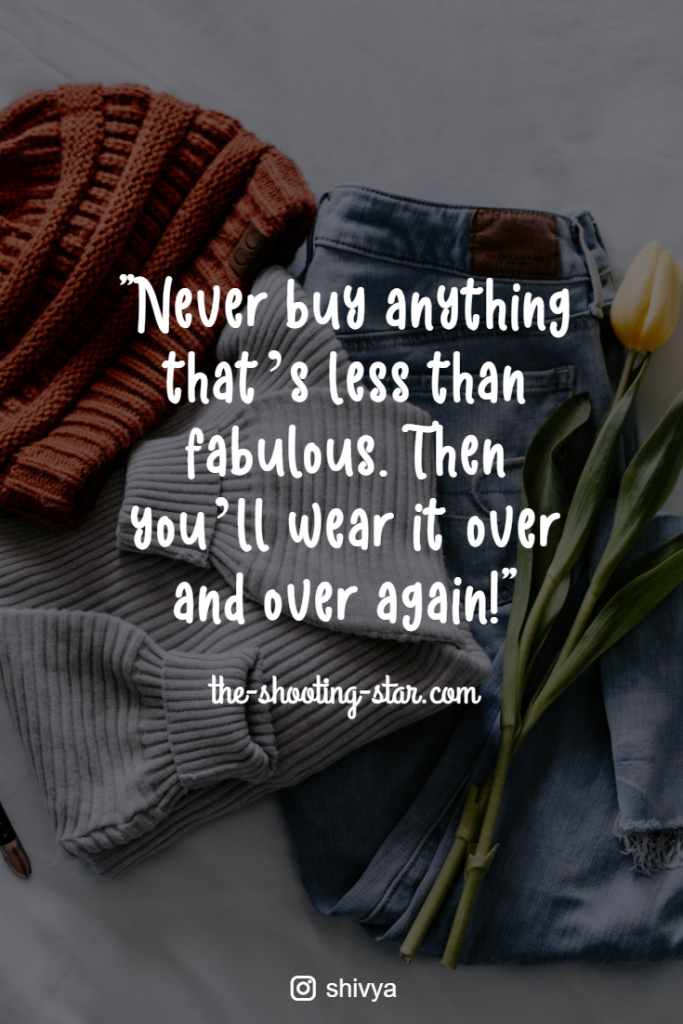
Broadly speaking, sustainable fashion refers to clothes and products that:
- Are made from eco-friendly or recycled fabrics.
- Use organic (chemical-free, pesticide-free) materials and dyes.
- Employ fair trade practices – no forced labor, no child labor, reasonable working hours and fair pay.
- Refrain from using materials, inks and other ingredients derived from animals, and say no to animal testing.
Also read: Can we Stay Safe Yet Reduce Single Use Plastic During the Pandemic?
Affordable sustainable clothing in India
Even as fast fashion is taking over the country, several brands offer clothing that is not only creative but also homegrown, upcycled, fair-trade, organic, ethical and eco-friendly. Now that’s a real fashion statement!
1. No Nasties
No Nasties is Goa’s first organic clothing brand and a pioneer of sustainable fashion in India, founded by Apurva Kothari. They use organic cotton seeds on fair trade farms. Synthetic pesticides and GMOs are a strict no. The entire seeds to clothes process is eco-friendly and ethical, right down to the inks being used (made without any animal ingredients).
2. Pomogrenade
Pomogrenade was founded by Madhulika Umapathy and Aiswarya Kutty with the mission of reducing the amount of fabric that lands up in Indian landfills. Their comfy, daily wear dresses, tops, shorts, belts and men’s shirts are all made from surplus cotton fabric and natural dyes, by a fair trade production house and disadvantaged communities in Bangalore.
To really close the loop, they go the extra mile by taking back any pre-loved (used) Pomogrenade clothing, and in exchange, offer a coupon for future buys on their website!
3. Maati
Maati, founded by Neha Kabra, works with a community in Rajasthan to create unique clothing with traditional Indian printing techniques. A part of the fabric is upcycled, the dyes and print colours are borrowed from nature (not animals) and the packaging is plastic-free.
4. Hoomanwear
Hoomanwear is India’s first – and perhaps only – causewear brand, which donates over 30% of all profits to organisations involved in meaningful work. Founder Harshil Vora is a passionate vegan, and all their t-shirts, crop tops and hoodies are plant-based (less than 5% synthetic fibers) and customizable with different vibes. They are made only on demand (zero waste), use certified sustainable inks, are free of animal ingredients and delivered in recycled pizza boxes or cloth bags!
5. PANI Swimwear
I was surprised to learn that most swimsuits leach microfibers into the ocean. And amazed to discover PANI Swimwear, founded by Leila, an international development professional from Mauritius who now calls Mumbai home. PANI makes body-positive swimsuits catered to a wide range of body types, designed from recycled fishing nets! Unfortunately the microfiber leaching persists with these, but atleast they’re part of a circular economy until something better comes along.
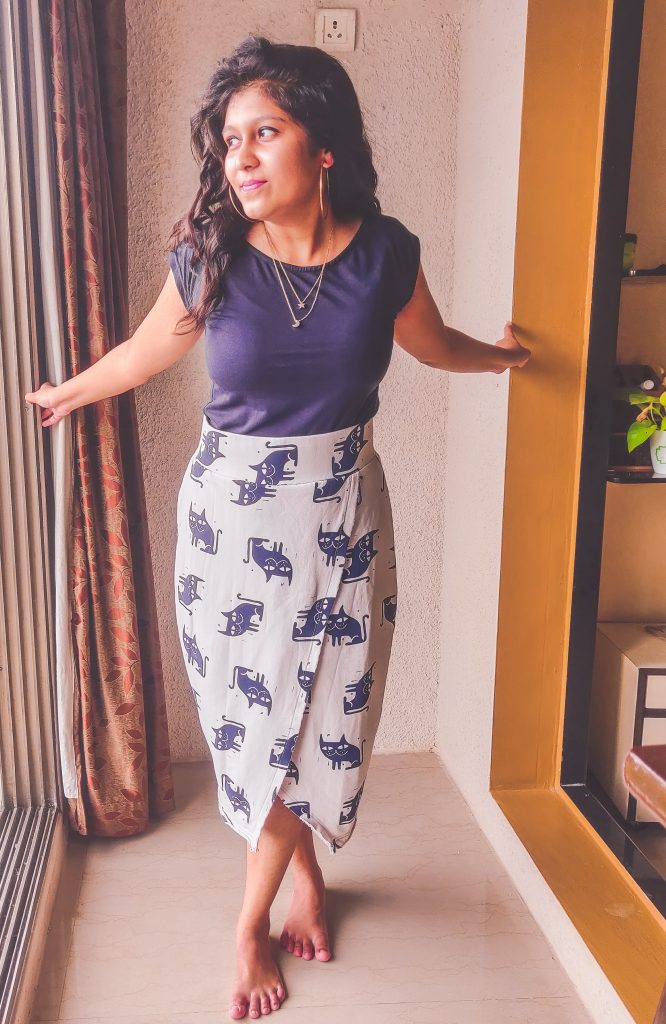
6. Increscent
Founded by Kamakshi Singh with the goal of being affordable, Increscent offers vintage clothing (dresses, tops, skirts etc), crafted in small batches by a community in Rajasthan. 60% of the fabrics they use are recycled from the dead stock of various export houses!
7. Renge
Founded by animal lover Sheena Uppal, Renge sources surplus fabric from warehouses to produce unique, limited edition designs for women. Proceeds from Renge are also used to support animal sanctuaries in India.
8. Hemp Kari
The latest addition to India’s growing hemp movement is the homegrown brand Hemp Kari. They offer natural hemp-based fabrics with traditional hand embroidery done by local artisans in Lucknow and nearby villages. The tops are delivered in plastic-free packaging, and use tags / labels made of hemp paper.
Also read: The Shooting Star Collection: Travel Inspired Clothing for a Cause
High-end sustainable fashion brands in India
9. Ka Sha
Karishma Shahani Khan created a clothing line from plastic gunny sacks, old chandeliers and second-hand sneakers while studying in London. Now based out of Pune, her Ka Sha label explores natural fabrics and works closely with artisans across the country. Her zero waste “Heart to Haat” collection focuses on upcycling discarded clothing.
10. Nicobar
Nicobar is the slow fashion brainchild of Simran Lal and Raul Rai, inspired by tropical living. They’re bigger than most brands mentioned in this guide, with physical stores across the country. That only means more responsibility.
Their core line uses only organic cotton, along with natural fabrics like bamboo. Their woolen collection uses recycled wool, and the kidswear is made entirely from leftover fabric. Most of their products come in plastic free packaging.
Also read: Responsible Travel Tips for Authentic, Meaningful Experience on the Road
Eco-friendly winter clothing
11. Kosha
The brainchild of mountaineer Yuktie Jhangiani Verma, Kosha is a truly forward-thinking homegrown winter-wear brand, based on the principles of slow fashion, mindful travel and sustainability. Kosha’s animal-friendly #NoLeatherNoFeather range features organic bamboo cotton (made from bamboo fibre) sweatshirts and joggers, and parkas, jackets and pullovers free from wool and down feathers – that can sustain temperatures upto -20 degrees!
Unlike many fast fashion brands that need clothes to be constantly replaced, Kosha prides itself in durable clothing and offers a repair shop to mend tears, zippers and hoods! Scrap fabric, reusable boxes and drawstring backpacks are used for packaging and delivery,
12. Himalayan Blooms
Bangalore resident Pratibha Krishnaiah quit her corporate job to work as a Youth for India fellow in rural Uttarakhand. After the fellowship, she decided to stay on in the remote village of Kheti Khan, and began Himalayan Blooms – a social enterprise that seeks to create financial independence for local women. Using mostly cotton (no wool), they hand-knit the most gorgeous ponchos, sweaters, scarfs and neck warmers – available for India wide delivery right from the heart of the Himalayas!
Also read: How to Travel as a Vegan and Find Delicious Food Anywhere in the World
Ethical, vegan and cruelty free cosmetics in India
It is shocking that several animal ingredients are hidden away in our daily toiletries and cosmetics. Some of these include: Honey, the food of bees. Beeswax, derived by destroying their painstakingly created combs used to house their young and store honey. Gelatin, extracted from the skins, bones and tissues of animals.
In 2020, despite being well-versed with what works on the human skin and scalp, some (big) brands like Maybelline, Estee Lauder and Clinique still test on animals!
Here are some sustainable beauty brands in India that support local entrepreneurs, source ethical ingredients and do not test on animals:
1. Disguise Cosmetics
Disguise Cosmetics is an Indian brand which believes in setting an honest, ethical and pocket-friendly beauty standard for our skin. All their cosmetics are free from animal oils, fats, pigments, secretions and proteins. Their matte lipsticks and all-day gel kajals are all the rage!
2. The Switch Fix
I cannot stress how much I love this brand. The Switch Fix is everything I could wish for: No plastic, no palm oil, cruelty-free, vegan, plant-based, water-saving and non-polluting!
From shampoo bars (no spill, no issues while checking in, last up to 50 washes) to bamboo toothbrushes, they have all our personal care needs covered.
3. Plum Goodness
Homegrown brand Plum offers a wide range of vegan and paraben-free hair, face, body and skincare products. They also recycle your empty plum plastic bottles with a gift voucher of Rs 50 for future use!
4. Veganology
A young brand nurtured with love and compassion, Veganology uses essential oils to create moisturizing soap bars, body butters, lip balms and even a vegan, chemical-free talcum powder.
5. FAE
FAE, which stands for Free And Equal, is an Indian start-up trying to challenge conventional, biased notions of beauty. Their wide range of lipsticks is vegan, cruelty-free and paraben-free.
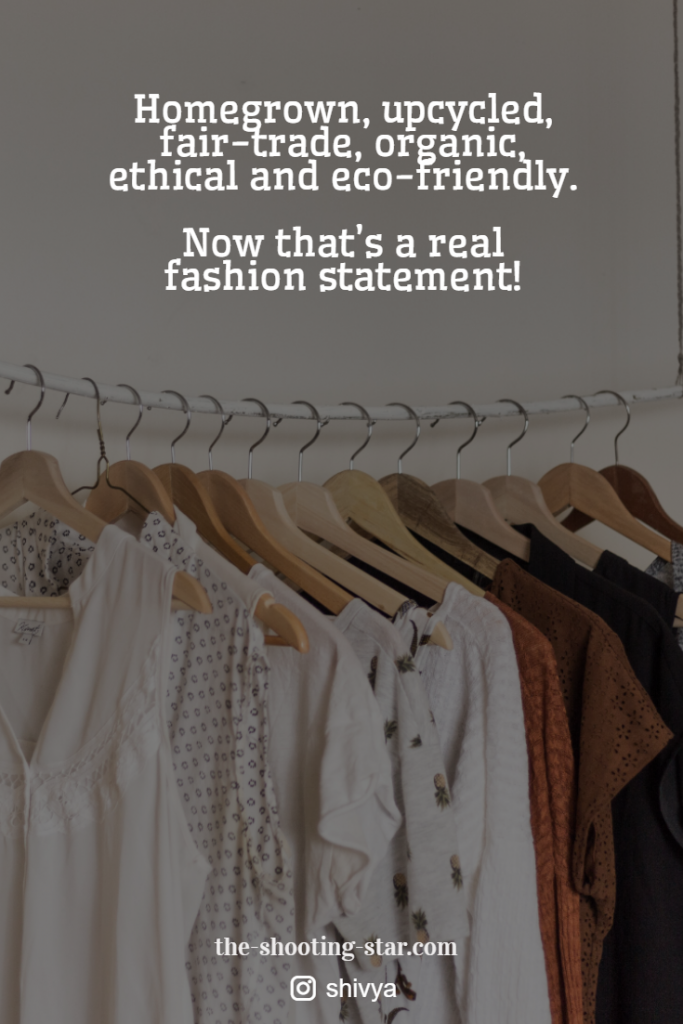
6. Kay by Katrina
India’s first celebrity cosmetic brand Kay was launched last year by Katrina Kaif – and it’s reported to be vegan and cruelty-free! She said she wanted to create products that would spark a vegan cosmetics revolution in India – and I think she’s on her way.
7. Colorbar
Colorbar is India’s third largest cosmetic brand. It is cruelty free, with a wide range of vegan products, well-labelled on the website.
8. Khadi Essentials
The homegrown Khadi Essentials brand is based on the principles of Ayurveda. Most of their personal care products are vegan, cruelty-free and paraben free.
9. Lotus Herbals
Lotus Herbals is hardly a stranger to Indian consumers. This local brand commits to nature’s wealth in tandem with being compassionate to all. No chemicals, nothing synthetic, no animal ingredients and no animal testing.
10. Himalaya
Back in the early 1900s, Mr Manal was travelling in Myanmar (then Burma), when he stumbled upon locals feeding the roots of a local herb to calm a herd of agitated elephants. His curiosity led him to start a revolution out of Dehradun in 1934, to develop all-natural personal care resources based on Ayurveda, science and nature. Himalaya continues to be a game changer for sustainable living everywhere! The Himalaya toothpaste and wide range of products make it much easier to be vegan in India and elsewhere.
11. Vicco
I guess we all remember the Vicco Vajradanti commercial from our childhood in India! Sounds old school, but Vicco is actually a pioneer of vegan and natural products in the country.
12. The Body Shop
British brand, The Body Shop, pioneered the cruelty free movement but some of their products still contain animal ingredients like milk, honey, beeswax, etc. The vegan products are well-labelled though. They mostly come in plastic but The Body Shop has recently started an initiative to engage women in local communities to make recycled bottles.
Also read: Offbeat, Incredible and Sustainable – Travel Companies Changing the Way We Experience India
What’s wrong with fast fashion, anyway?

Fast fashion uses up excessive natural resources
- Every year, the fashion industry uses 93 billion cubic meters of water – enough to meet the water consumption needs of 5 million people!
- 150 million trees are cut and turned into fabric every year, through land clearing and plant pulps.
- Every year, disposed off clothes result in half a million tons of plastic microfibers in the ocean – the equivalent of 50 billion plastic bottles. These microfibers are spreading through the food chain and are probably in our bodies now.
With the rise of online shopping, more fast fashion brands setting up shop in India and the constant pressure to keep up with fashion trends, India is already on its way to embracing fast fashion – at great cost to the environment.
Slow fashion in India can reduce our individual carbon footprint
Only 15% of our clothes are recycled or donated. Even those gradually land up in landfills where they slowly release methane, a potent greenhouse gas that contributes significantly to climate change. That’s a strong reason to embrace sustainable fashion in India.
Humans and animals are exploited to cater to our fashion demands
- Even though child labor has been declining, the International Labor Organisation estimates that 170 million children worldwide are still forced into labor – many of them manufacturing textiles and garments for big international brands.
- Leather is made from the skin of various animals: Oxen, cows, alligators, ostriches, snakes, even kangaroos. Unlike popular perception, leather is not simply a by-product of the meat industry. It is an industry in itself – one that makes billions of dollars by cleverly convincing consumers that they want to wear the skin of a dead animal or carry it on their arms!
- The wool industry has been in the spotlight for aggressively shearing wool off sheep, goats (cashmere) and rabbits (angora wool), often leading to open wounds, pain and trauma to the animals. These animals ultimately land up in slaughter.
- A single silk saree involves the death of 10,000+ silk worms – by smoking their cocoons or boiling them alive – even before they can mature into those pretty silk moths. According to the Higg Index, silk consumes more water and emits more greenhouse gases than most common textiles like polyester, viscose and cotton.
Also read: 11 Tips to Ease Your Transition Into a Vegan Lifestyle
How to make sustainable fashion choices in India
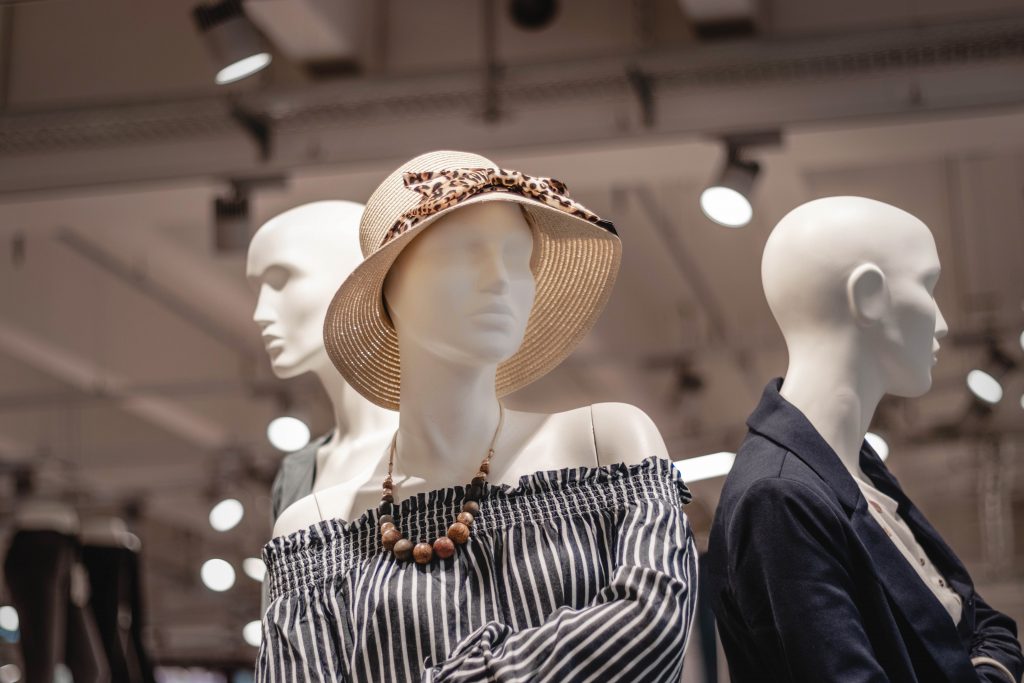
Given the obvious urgency to switch to more eco-friendly, ethical and conscious fashion, here are some ways I’ve learnt to embrace sustainable fashion in India:
Ask before buying
Do I REALLY need that dress? Am I adding to my non-biodegradable cosmetic collection? Am I using hair products tested on animals?
Before I buy anything, I do some quick research. Brands do reply to queries. I hit them up on their Instagram pages, drop them an email or call them.
Recently, I was curious about Sugar Cosmetics, so I both googled and called them – and was surprised to learn that their products are cruelty free (not tested on animals). I recently dropped a message on Chumbak’s Instagram page asking about their accessories, and learnt that their belts and watches are made from animal leather.
Invest in eco-friendly, organic, cruelty free brands in India
For me, buying less means being able to invest more in better alternatives:
- Look for clothes made of organic cotton. Check for labels from the Better Cotton Initiative, to ensure less water and chemical dyes.
- Replace your cotton clothes with eco-friendly natural fabrics like hemp and bamboo. Cotton is water-intensive and depletes the soil, while hemp produces twice as much fiber per acre, uses less water and enriches the soil. Itshemp aggregates all hemp products available across India!
- Purchase accessories, bags, shoes and belts made of faux (fake) leather. These days, innovative brands are making leather products from cork, upcycled flowers, hemp and even pineapple leaves!
- Choose personal care and cosmetic products like shampoo, lipstick, kajal, mosquito repellent, toothpaste etc that contain no animal ingredients (vegan) and haven’t been tested on animals (cruelty free). China has made it mandatory to test all products sold there on animals – so any brand that sells in China is unfortunately not cruelty free. Look out for the cruelty free label to identify products.
- Most colored cosmetics use ingredients like red carmine dye made from beetles, lanolin from the glands of wool-bearing animals, keratin from the horns and claws of reptiles, fish or birds, and silk protein from silkworms boiled alive! Opt for natural, vegan, cruelty-free cosmetics instead.
- Use toiletries and cosmetics free from plastic. Replace plastic bottles with soap, shampoo and conditioner bars – easier to carry while travelling too.
Identify ethical fashion brands
I’ve been using the “Good on You” app – which rates brands based on their impact on humans, animals and the environment. It doesn’t feature Indian brands, but can be useful for international ones or while shopping abroad. It also has brilliant content about sustainability, ethical sourcing, vegan fashion etc.
Embrace slow fashion in India
- Instead of impulsively buying something new, choose to invest in clothing that has creatively been upcycled. Refash and Bodements exclusively stock clothes upcycled from pre-loved garments!
- Buy from zero waste brands like WeAreLabeless and Adah by Leesha, that use every bit of scrap fabric and plastic to create something new, sending nothing to the bin.
- Upcycle sarees you or your family own. LataSita converts sarees into beautiful dresses and other designer clothing. Mishcat Co recycles sarees into artisan carpets!
- Attend a Clothes Exchange Program in your city. See Instagram for accounts like Bombay Closet Cleanse or participate in Swap Soiree by Mahima Agarwal.
- Let your friends visit your wardrobe. Asking your friends to mix and match your clothes can give you a new pair from a different point of view!
- Donate clothes in good condition to old age homes, orphanages and anyone who needs them. Some retail companies like H&M ask you to exchange your old cloths for points/new buys.
Also read: How I Fit All My Possessions in Two Bags as I Travel the World
Challenges faced by sustainable fashion in India
Sustainable fashion is yet to come of age in India, because of multiple reasons:
Lack of transparency
With no regulations in place, fast fashion brands across India are under no pressure to disclose the environmental and social impact of their manufacturing, sales and disposal process. No major campaigns have been launched in India in recent times to build the momentum to drive policy change – but it’s an uprising waiting to happen!
Price sensitivity in the market
The truth is, buying from sustainable fashion brands remains more expensive than fast fashion, and there’s a good reason for that. Organic sourcing, fair wages and buy-back programs come at a price. On the other hand, the cost of fast fashion is borne by underpaid workers and environmental degradation.
Lack of awareness
Besides price sensitivity, there is simply not enough awareness among consumers on the impact of their buying choices. It’s so easy to order cheap clothes online, that instead of repairing and reusing, we’re throwing them by the dozes to constantly change our wardrobes. Hence this blog!
Sustainable fashion bloggers in India
A couple of bloggers / Instagrammers you can take inspiration from, as you learn about ethical, fair-trade, cruelty free and sustainable fashion in India:
Anya Gupta
Anya Gupta is a fashion and lifestyle influencer who makes DIY products like detergent, toothpaste etc look uber cool! And damn, her clothing and cosmetics recommendations are super inspiring.
Aparna Sharma
Based in Bangkok, Aparna Sharma (aka @stylishsuitcase) is closely connected to her roots in India, and always on the lookout for artisan-first brands and fun thrifting stores!
Aditi Mayer
Aditi Mayer is all about sustainable fashion and social justice – two topics that rarely meet each other. Her profile focuses on South Asian fashion, and is one of the rare ones that deeply explore ethics and eco-friendly living.
Shivya Nath
While Shivya Nath’s primarily focus is on sustainable travel, her stories on Instagram and blog span different aspects of sustainability, including conscious living and slow fashion.
Also read: Why Long Term Travel is Less Like Instagram and More Like Real Life
Your questions

Thanks for sharing your questions around sustainable fashion. Those not directly answered in the post above are included below.
If you have more questions, please ask them in the comments to this post.
What are some unique sustainable fashion brands in Mumbai?
Some sustainable fashion brands born in Mumbai include Nicobar, Inaaya and Co, and Bhumika & Jyoti.
What does ethical clothing mean?
“Ethical” encapsulates anything that is kind to people, animals and the environment. Typically, ethical clothing is made with natural materials like organic cotton, hemp or bamboo. The artisans involved in crafting it work in respectable working conditions and are paid fairly. No animals are harmed in the making of the products, neither by making use of animal-derived ingredients nor by testing on animals.
Where to find eco-friendly clothing in Pune?
Pune’s homegrown sustainable labels include the Ka Sha boutique and Outliers Clothing Co.
What are recommended sustainable fashion brands in Bangalore
Bangalore’s SwapStitched clothes swap events are one of a kind!
Bangalore’s sustainable fashion options include House of Primes, Ethic Attic and Kaiyare.
Do you think about slow, eco-friendly fashion? What steps have you taken (or will take) towards it? What are your favorite sustainable fashion brands in India?
*Note: This article does not endorse or represent any of the brands mentioned. Views and opinions are entirely the author’s own.
If you’d like to contribute a guest post to The Shooting Star, please see guidelines here.
ALSO READ:
7 Sustainable Home Decor Brands to Furnish Your House or Bnb Creatively
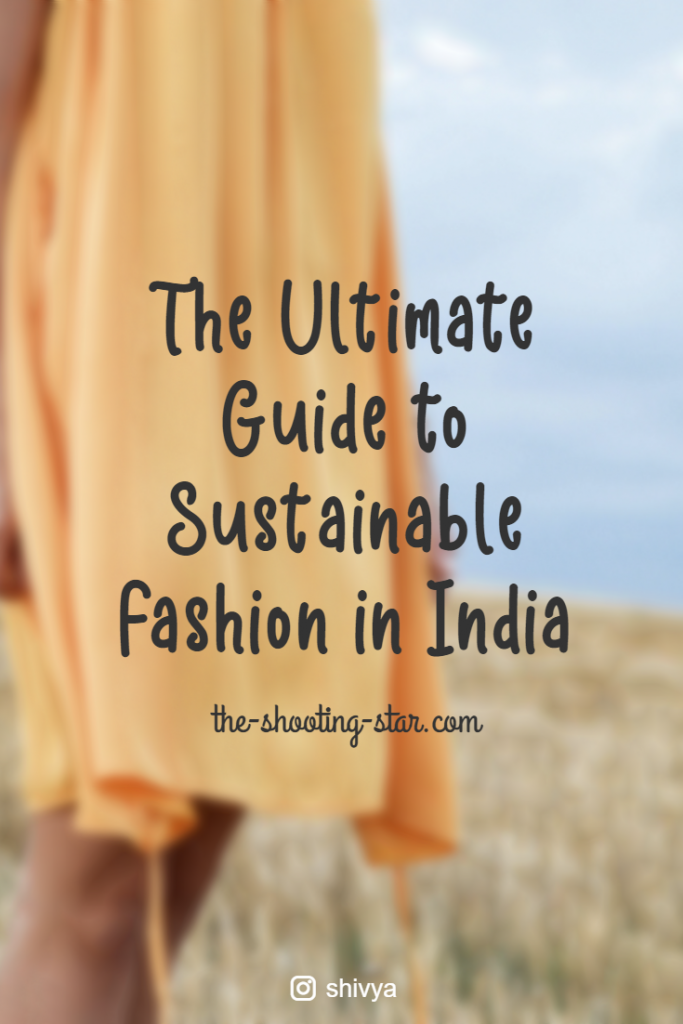
About the guest author:

Parita Bhansali is a curious traveller and a corporate sales professional. She has loved animals since she was a child and gradually turned vegan after reading about the inhumane treatment of voiceless animals to satiate human greed. After a brief stint at Loreal, she began transitioning towards environmentally conscious and animal friendly products. She believes there is loads to be done to protect her only home – Planet Earth. Connect with her on: Pinterest | Blog | Instagram | YouTube | Twitter



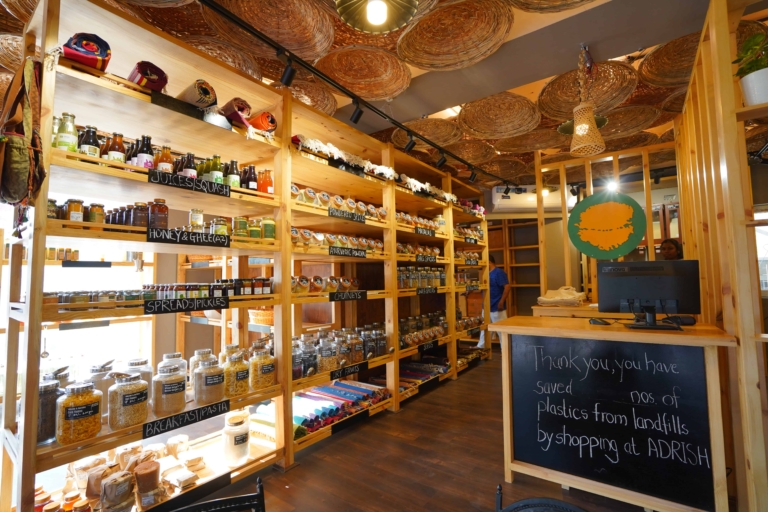
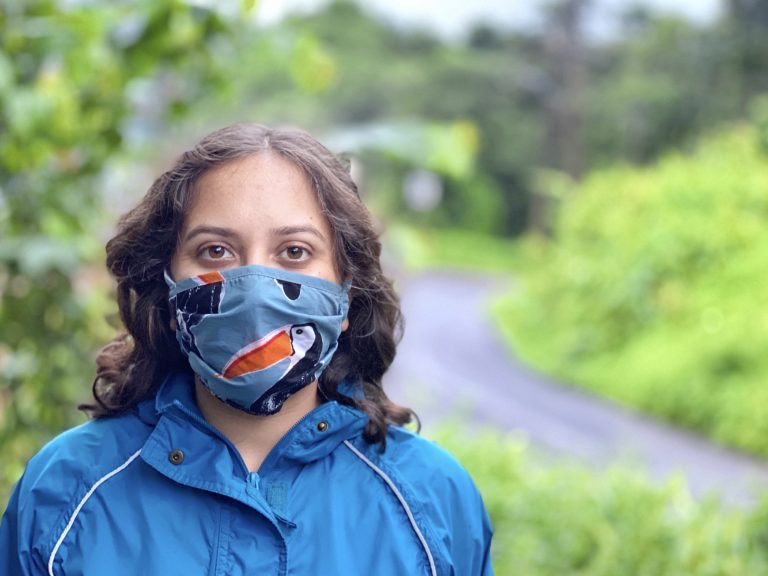


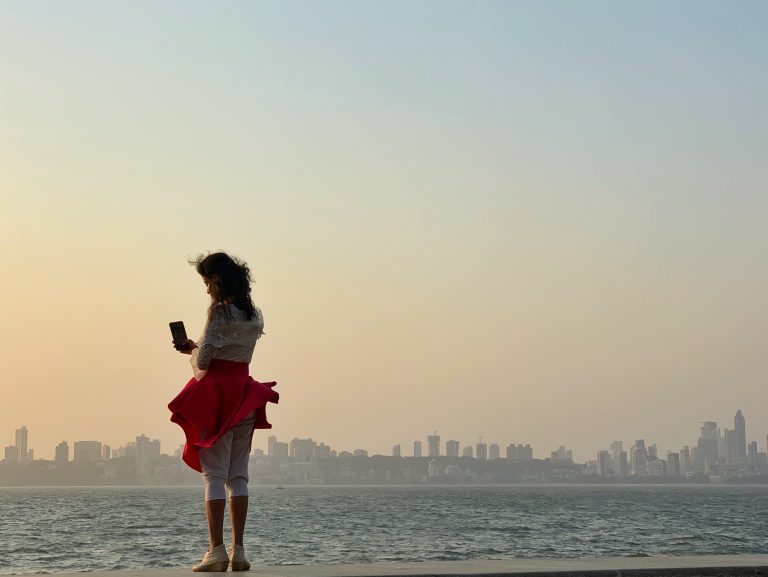
I never knew there were so many sustainable and affordable brands in India. Next time around will definitely source from them. Thanks for sharing such a well researched article.
Same here Anu! So proud of these Indian brands to be leading the way.
I was recently thinking about making my way to Slow Fashion, and was looking for a wholesome guide. I’m glad this blog dropped in today.
Thank you.
So glad to hear it came at the perfect time for you Divya!
What a lovely guide this is! Such a great resource for avoiding fast fashion and reducing your impact 🙂 Thanks for sharing!
Jenna ♥
Stay in touch?
Thanks Jenna! Parita did a great job at putting these resources together!
Wow. Loved it !!
There’s so much of unawareness amongst we humans. Realized reading this article.
Definitely gonna check out these mentioned brands and use it in my regular life !!
Are those clothing brands available on Amazon/Flipkart if anyone wishes to buy ?
Exactly! I believe some of these are on amazon, but all deliver online from their website / Instagram 🙂
What a beautiful, informative and detailed post! ❤️ Thank you for doing this and making it easy for me to use a guide made for India specifically that I can easily share with my friends and also keep as a reference 🙂
So glad you found this useful, Vinita! So proud of all these homegrown brands making it so much easier to embrace sustainability in India 🙂
It’s almost as if Sustainable fashion us bot affordable for the great Indian middle-class. While upcycling everything is in our genes (economic reasons) I am not sure how many would want to buy an expensive pair of pants just because they are eco-friendly.
That’s the beauty of slow, sustainable fashion. Buying much, much less and saving that money to invest in something that is good for us and good for the planet.
Wow interesting. I have read few of your posts and I have to admit, each of them are truly inspiring. Your novel is in my wishlist and I would love to buy and read it soon.
Coming to this post, the thought towards shifting to sustainable fashion is provoking and I would love to try it, and become the change our society needs. It needs time though. Thanks for the guide.
Very informative post! ❤️ Thank you for sharing this and making easy for me.
I will definitely check out the given products.
It is really good that now people are moving to organic and sustainable products rather than using synthetics.
Amazing Post I have choice a wrong person for my fashion dress
This is really a very good post, providing all the information that is necessary for everyone to know. Sustainable fashion is something everyone must know and adopt the fashion trend accordingly.
You have mentioned the name of all the great fashion brands and people doing the great work in the field. Good to know that things are going at a great pace.
I am also running a sustainable fashion brand Amar Kosa in Bangalore.
If some of you reading here interested to see our collection can visit us at our fashion studio in Bangalore or http://www.amarkosa.com
Lovely stuff you have
Hi! Wonderful post! Really helpful for those getting started to shop most mindfully in India.
However, I think the Body Shop is a misfit in this as it has been accused of Greenwashing on several occasions and unfortunately does not do as much good as the other incredible brands mentioned here. Maybe you want to look up that. Keep up the good work!
Loved the post and intentions behind it. However I disagree on exchange program of H&M because that is green washing. Luring to buy you more from them which is not even sustainable.
I recently learned about this. And also how H&M refused to pay their factory workers in India
Love the recommendations. Although I think Body Shop’s parent company is L’Oreal which is definitely not cruelty free
Hi, Great Post! If you are purchasing the clothes impulsively, you might end up ordering something that you may not use a lot and waste your money and resources. Make sure that you do a quick research and post queries if necessary.
I really enjoyed your blog post on sustainable fashion in India. I’m a big fan of sustainable fashion, and I think it’s important to support brands that are making an effort to be more environmentally friendly.